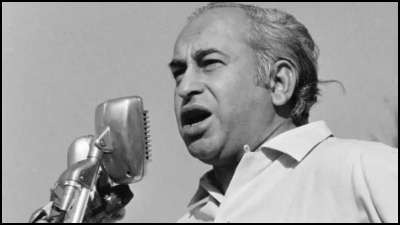The Supreme Court of Pakistan announced its long-awaited opinion on a presidential reference seeking to revisit the death sentence awarded to former prime minister Zulfikar Ali Bhutto. The nine-judge bench, headed by Chief Justice Qazi Faez Isa, unanimously concluded that the trial under the 1979 judgment did not meet the requirements of a fair trial and due process. The proceedings of the trial by the Lahore High Court and the appeal by the Supreme Court of Pakistan were deemed inadequate.
The reference, filed in April 2011 on behalf of former president Asif Ali Zardari, sought an opinion under the Supreme Court’s advisory jurisdiction on revisiting the death sentence. The court acknowledged that there had been cases in judicial history that created a public perception of fear or favor deterring the performance of a duty to administer justice in accordance with the law.The court emphasized the importance of confronting past missteps and fallibilities with humility and self-accountability, stating that the court was empowered to render an opinion on any question of law of public importance under Article 186 of the Constitution.
The court also reflected on the proceedings of the trial, conviction, and death sentence of Mr. Bhutto under the regime of military dictator General Ziaul Haq.The court noted that the reference provided an opportunity to reflect upon the proceedings of the trial, conviction, and death sentence of Mr. Bhutto under the regime of military dictator General Ziaul Haq. The court also recalled that the reference was filed during the government of the PPP and that the successive governments of other major political parties carried forward this inquiry and did not opt to withdraw the reference, which included the caretaker government.
The court stated that the Constitution and the law do not provide a mechanism to set aside the judgment whereby Bhutto was convicted and sentenced. The court also addressed the principle of law enunciated in the Zulfikar Ali Bhutto case, stating that the reference did not specify the principle of law enunciated in the case, and therefore, it could not be answered whether any principle of law enunciated in the Zulfikar Ali Bhutto case has been dissented to or overruled.The court also addressed the question of whether the awarding and maintaining of the death sentence was “justified or could amount to deliberate murder.” The court observed that it could not reappraise the evidence and undo the decision of the case.
However, in its detailed reasons, the court identified the major constitutional and legal lapses that had occurred regarding fair trial and due process.The court also addressed the matter of Islamic injunctions, stating that it would not render any assistance on the question. Therefore, it would be inappropriate to render an opinion on the Islamic aspects.The Bhutto family, lawyers, and Bilawal Bhutto-Zardari, the grandson of Zulfikar Ali Bhutto, hailed the court’s views as “historic.” Bilawal Bhutto-Zardari, the PPP chairman, called the court’s views “historic,” adding that they were awaiting the detailed opinion. He hoped that, 44 years later, the SC’s opinion would allow Pakistan to progress and that the “system” would finally be put on the right path.


